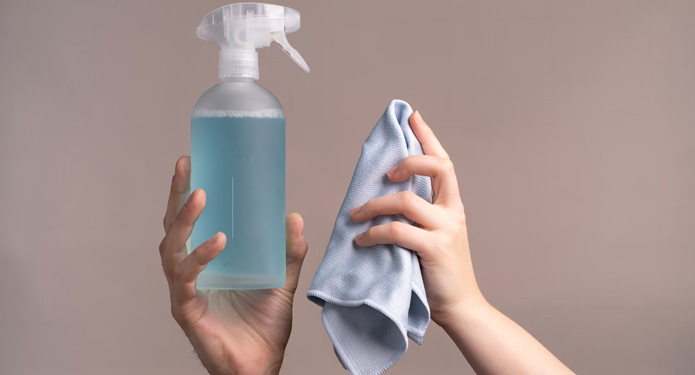
Cleaning your windows regularly is an essential part of maintaining a sparkling and inviting home environment. While there are numerous commercial window cleaning products available on the market, you can also create effective homemade solutions using common household ingredients. Not only are homemade window cleaning solutions cost-effective, but they are also environmentally friendly and free from harsh chemicals that may pose risks to your health and the environment. In this comprehensive guide, we’ll explore the top homemade window cleaning solutions, their ingredients, and how to use them effectively to achieve streak-free, crystal-clear windows.
1. Vinegar and Water Solution:
Vinegar is a versatile household ingredient known for its natural cleaning properties, making it an excellent choice for homemade window cleaner.
The Ingredients:
- Distilled white vinegar: Vinegar acts as a natural degreaser and disinfectant, effectively cutting through dirt, grease, and grime on windows.
- Water: Diluting vinegar with water helps to balance its acidity and prevent streaking on glass surfaces.
The Recipe:
Mix equal parts of distilled white vinegar and water in a spray bottle. For example, combine 1 cup of vinegar with 1 cup of water.
The Instructions:
- Shake the spray bottle to ensure the vinegar and water are well mixed.
- Spray the solution onto the window surface, covering it evenly.
- Wipe the window with a clean microfiber cloth or squeegee in a circular motion to remove dirt and grime.
- Use a dry microfiber cloth to buff the window to a streak-free shine.
2. Rubbing Alcohol and Water Solution
Rubbing alcohol, also known as isopropyl alcohol, is an effective solvent that evaporates quickly, leaving windows streak-free and sparkling clean.
The Ingredients:
- Rubbing alcohol (isopropyl alcohol): Acts as a solvent to dissolve dirt, grease, and residue on windows.
- Water: Dilutes the rubbing alcohol and helps to spread the solution evenly on the window surface.
The Recipe:
Mix one part rubbing alcohol with one part water in a spray bottle. For example, combine 1 cup of rubbing alcohol with 1 cup of water.
The Instructions:
- Shake the spray bottle to ensure the rubbing alcohol and water are thoroughly mixed.
- Spray the solution onto the window surface, covering it evenly.
- Wipe the window with a clean microfiber cloth or squeegee in vertical or horizontal strokes to remove dirt and grime.
- Use a dry microfiber cloth to buff the window to a streak-free shine.
3. Ammonia and Water Solution
Ammonia is a powerful cleaning agent that effectively cuts through grease and grime, making it an excellent choice for tackling tough window stains.
The Ingredients:
- Ammonia: Acts as a strong degreaser and cleaner, breaking down stubborn residues on windows.
- Water: Dilutes the ammonia and helps to reduce its harshness.
The Recipe:
Mix one part ammonia with three parts water in a spray bottle. For example, combine 1/4 cup of ammonia with 3/4 cup of water.
The Instructions:
- Ensure adequate ventilation when working with ammonia, as it has a strong odor.
- Shake the spray bottle to ensure the ammonia and water are well mixed.
- Spray the solution onto the window surface, covering it evenly.
- Wipe the window with a clean microfiber cloth or squeegee in a circular motion to remove dirt and grime.
- Use a dry microfiber cloth to buff the window to a streak-free shine.
4. Lemon Juice and Water Solution
Lemon juice is a natural degreaser and sanitizer that leaves behind a fresh, citrusy scent, making it an ideal ingredient for homemade window cleaner.
The Ingredients:
- Fresh lemon juice: Contains citric acid, which helps to dissolve grease and grime while leaving behind a pleasant scent.
- Water: Dilutes the lemon juice and prevents streaking on glass surfaces.
The Recipe:
Mix equal parts of fresh lemon juice and water in a spray bottle. For example, combine 1/2 cup of lemon juice with 1/2 cup of water.
The Instructions:
- Cut a fresh lemon in half and squeeze the juice into a measuring cup.
- Mix the lemon juice with an equal amount of water in a spray bottle and shake well to combine.
- Spray the solution onto the window surface, covering it evenly.
- Wipe the window with a clean microfiber cloth or squeegee in vertical or horizontal strokes to remove dirt and grime.
- Use a dry microfiber cloth to buff the window to a streak-free shine.
5. Cornstarch and Vinegar Solution
Cornstarch is an abrasive agent that helps to scrub away stubborn stains and residue from glass surfaces, while vinegar provides additional cleaning power.
The Ingredients:
- Cornstarch: Acts as an abrasive agent to help scrub away dirt and grime.
- Distilled white vinegar: Provides natural cleaning and disinfecting properties.
- Water: Dilutes the vinegar and helps to spread the solution evenly.
The Recipe:
Mix 2 tablespoons of cornstarch with 1/4 cup of distilled white vinegar and 1/4 cup of water in a spray bottle.
The Instructions:
- Shake the spray bottle to ensure the ingredients are well mixed and the cornstarch is dissolved.
- Spray the solution onto the window surface, covering it evenly.
- Allow the solution to sit for a few minutes to loosen stubborn stains and residue.
- Wipe the window with a clean microfiber cloth or squeegee in circular motions to scrub away dirt and grime.
- Use a dry microfiber cloth to buff the window to a streak-free shine.
Tips for Using Homemade Window Cleaning Solutions:
- Test in a Small Area: Before using any homemade window cleaning solution on all your windows, test it in a small, inconspicuous area to ensure compatibility with your window surfaces.
- Use Microfiber Cloths or Squeegees: Microfiber cloths are highly effective for cleaning windows as they are soft, absorbent, and lint-free. Alternatively, you can use a squeegee to remove excess solution and prevent streaking.
- Work in Sections: Clean one section of the window at a time to prevent the cleaning solution from drying before you can wipe it away, which can lead to streaking.
- Wipe Dry with a Dry Cloth: After cleaning the window with the solution, use a dry microfiber cloth to wipe away any remaining moisture and buff the window to a streak-free shine.
- Avoid Cleaning in Direct Sunlight: Cleaning windows in direct sunlight can cause the cleaning solution to dry too quickly, leading to streaking. Choose a cloudy day or clean your windows in the early morning or late afternoon when the sun is not as intense.
Safety Precautions:
- Ventilate the Area: Ensure adequate ventilation when working with ammonia or other strong cleaning solutions to prevent inhalation of fumes. Open windows and doors to allow fresh air to circulate in the room.
- Wear Gloves and Eye Protection: When handling cleaning solutions, wear rubber gloves and eye protection to protect your skin
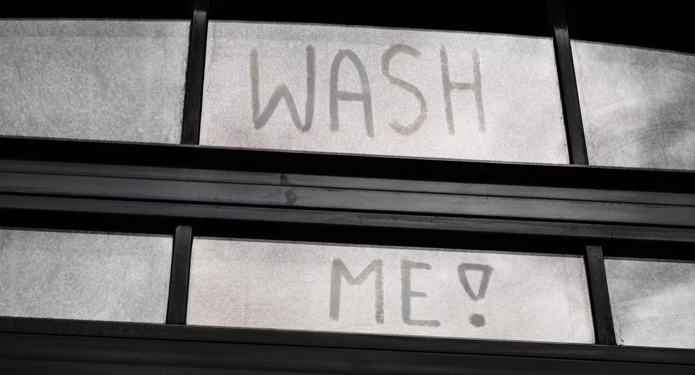
What Are Other Popular Ways To Clean Windows?
In addition to homemade window cleaning solutions, there are several other popular methods and commercial products available for cleaning windows. Here are some of the most common ones:
Commercial Glass Cleaners
Commercial glass cleaners are readily available at supermarkets, hardware stores, and online retailers. These products are formulated specifically for cleaning glass surfaces and come in spray bottles or aerosol cans. They often contain ingredients such as ammonia, vinegar, or surfactants to dissolve dirt and grime and leave windows streak-free.
Pre-Moistened Wipes
Pre-moistened wipes or cleaning pads designed for glass surfaces are convenient options for quick and easy window cleaning. These wipes are typically pre-soaked with a cleaning solution and come in resealable packs for convenience. They are ideal for spot cleaning or touch-ups between deeper cleaning sessions.
Window Cleaning Kits
Window cleaning kits typically include a squeegee, scrubber, and extension pole for reaching high windows. These kits are designed for professional-quality window cleaning and are suitable for both residential and commercial use. They often come with interchangeable cleaning pads or microfiber cloths for effective cleaning and drying.
Steam Cleaners
Steam cleaners use hot steam to loosen dirt and grime from glass surfaces, making them an effective and chemical-free option for window cleaning. These devices often come with attachments and accessories specifically designed for cleaning windows, such as squeegees and scrubbing brushes. Steam cleaning is environmentally friendly and can effectively remove stubborn stains and residue.
Pressure Washers
Pressure washers are powerful cleaning tools that use high-pressure water to remove dirt, grime, and debris from exterior windows and glass surfaces. They are particularly useful for cleaning large windows, glass doors, and outdoor windowsills. However, it’s essential to use caution when using pressure washers to avoid damaging window frames or causing water intrusion.
Homemade Recipes with Additional Ingredients
Some homemade window cleaning recipes include additional ingredients such as dish soap, baking soda, or essential oils for added cleaning power or fragrance. These ingredients can help to break down grease, eliminate odors, or provide extra shine to windows. Experimenting with different combinations of ingredients can help you find the perfect homemade window cleaning solution for your needs.
Professional Window Cleaning Services
For thorough and comprehensive window cleaning, you may consider hiring professional window cleaning services. Professional window cleaners have the expertise, equipment, and specialized tools to clean windows of all types, sizes, and heights safely and effectively. They can also provide additional services such as window screen cleaning, hard water stain removal, and exterior window washing for a complete window cleaning solution.
When choosing a window cleaning method or product, consider factors such as the type and size of your windows, the level of dirt and grime buildup, and any specific cleaning preferences or requirements you may have. Whether you opt for commercial products, homemade solutions, or professional services, regular window cleaning is essential for maintaining clear, bright, and beautiful windows that enhance the appearance of your home.
Are Homemade Window Cleaning Solutions As Good As Store-Bought Alternatives?
Homemade window cleaning solutions can be just as effective as store-bought alternatives, if not more so, depending on the ingredients and the cleaning method used. Here are some factors to consider when comparing homemade and store-bought window cleaners:
Cleaning Power:
Homemade window cleaning solutions often contain ingredients such as vinegar, rubbing alcohol, or ammonia, which are effective at cutting through dirt, grease, and grime on glass surfaces. These natural ingredients can be just as powerful as the chemicals found in store-bought cleaners.
Store-bought window cleaners may contain synthetic chemicals and surfactants designed to dissolve dirt and provide streak-free shine. While these chemicals can be effective, they may also leave behind residues or emit strong odors that some people find unpleasant.
Safety and Environmental Impact:
Homemade window cleaning solutions are typically made from natural, non-toxic ingredients such as vinegar, lemon juice, or rubbing alcohol, making them safer for use around children, pets, and the environment.
Store-bought window cleaners may contain harsh chemicals, solvents, or fragrances that can be harmful if inhaled or come into contact with skin. These chemicals can also contribute to indoor air pollution and environmental contamination when disposed of improperly.
Cost Effectiveness:
Homemade window cleaning solutions are often more cost-effective than store-bought alternatives since they use common household ingredients that are inexpensive and readily available. Making your own window cleaner allows you to save money on cleaning supplies while reducing waste from disposable packaging.
Store-bought window cleaners may be more expensive, especially if you opt for specialty or eco-friendly brands. While these products may offer convenience and specific features, they can be costlier in the long run compared to homemade solutions.
Customization and Flexibility:
Homemade window cleaning solutions offer the flexibility to customize the formula according to your preferences and cleaning needs. You can adjust the concentration of ingredients, experiment with different recipes, or add natural fragrances for a personalized cleaning experience.
Store-bought window cleaners come in pre-formulated solutions with limited options for customization. While these products may offer convenience and consistency, they may not cater to specific cleaning preferences or sensitivities.
Effectiveness on Different Surfaces:
Homemade window cleaning solutions are generally safe to use on a variety of glass surfaces, including windows, mirrors, glass doors, and shower enclosures. They can effectively remove dirt, fingerprints, water spots, and streaks without damaging the glass or leaving behind residues.
Store-bought window cleaners may be formulated for specific types of glass surfaces or coatings, such as tinted windows or low-E glass. While these products may provide optimal results on their intended surfaces, they may not be suitable for use on all types of glass or reflective surfaces.
Overall, the effectiveness of homemade window cleaning solutions depends on the ingredients used, the cleaning method employed, and the specific cleaning requirements of your windows. While store-bought window cleaners offer convenience and consistency, homemade solutions can be equally effective, safer, and more environmentally friendly alternatives for achieving sparkling clean windows without the use of harsh chemicals. Experimenting with different homemade recipes and techniques can help you find the perfect window cleaning solution that meets your needs and preferences.
Will a DIY Option Save Time or Money?
Whether you’ll save time and money with a do-it-yourself (DIY) option for window cleaning depends on various factors, including the availability of ingredients, your cleaning habits, and your preferences. Here’s a breakdown of the potential time and cost considerations:
Time Considerations
- Preparation Time: DIY window cleaning solutions typically require minimal preparation time since they use common household ingredients such as vinegar, water, or rubbing alcohol. Mixing the ingredients and transferring them to a spray bottle can be done quickly, usually within a few minutes.
- Application and Cleaning Time: Applying a DIY window cleaning solution to your windows and cleaning them with a microfiber cloth or squeegee may take a similar amount of time as using a store-bought cleaner. The actual cleaning process depends on the size and number of windows you’re cleaning, as well as the level of dirt and grime buildup.
- Effectiveness and Results: The effectiveness of a DIY window cleaning solution compared to a store-bought cleaner can impact the time spent on cleaning. If the DIY solution effectively removes dirt, grease, and streaks from your windows, you may achieve satisfactory results in a comparable amount of time.
Cost Considerations
- Cost of Ingredients: DIY window cleaning solutions are generally more cost-effective than store-bought cleaners since they use inexpensive and readily available ingredients such as vinegar, water, or rubbing alcohol. Purchasing these ingredients in bulk or using items you already have at home can further reduce costs.
- Initial Investment: Investing in basic cleaning supplies such as spray bottles, microfiber cloths, or squeegees may incur some initial upfront costs. However, these items are reusable and can be used for multiple cleaning tasks beyond window cleaning, potentially saving you money in the long run.
- Savings Over Time: Using DIY window cleaning solutions allows you to save money on purchasing commercial cleaners regularly. Over time, these savings can add up, especially if you clean your windows frequently or have a large number of windows to maintain.
Other Considerations
- Environmental Impact: DIY window cleaning solutions are often more environmentally friendly than store-bought cleaners since they use natural ingredients and reduce reliance on disposable plastic packaging. Choosing eco-friendly options aligns with sustainable living practices and contributes to reducing waste and pollution.
- Customization and Flexibility: DIY window cleaning solutions offer the flexibility to customize the formula according to your preferences and cleaning needs. You can adjust the concentration of ingredients, experiment with different recipes, or add natural fragrances for a personalized cleaning experience.
In summary, while DIY window cleaning solutions may require some initial investment in cleaning supplies, they can ultimately save you time and money over the long term, especially if you clean your windows frequently. Additionally, DIY options offer the benefits of environmental sustainability, customization, and flexibility, allowing you to achieve sparkling clean windows without the use of harsh chemicals or expensive commercial cleaners.
How Often Do Windows Need Cleaning?
The frequency of cleaning household windows depends on various factors, including environmental conditions, personal preferences, and the level of dirt and grime buildup. While there’s no one-size-fits-all answer, here are some general guidelines to help you determine how often to clean your windows:
- Seasonal Cleaning: Many homeowners opt to clean their windows seasonally, typically in the spring, summer, fall, and winter. Seasonal cleaning helps to remove accumulated dirt, dust, pollen, and other debris that can detract from the appearance of your windows and impact your indoor air quality.
- Monthly Cleaning: For optimal maintenance and cleanliness, consider cleaning your windows once a month, especially if you live in areas with high levels of air pollution, pollen, or environmental contaminants. Monthly cleaning helps to prevent dirt and grime from building up and keeps your windows looking bright and clear year-round.
- Bi-Monthly or Quarterly Cleaning: If you’re unable to clean your windows monthly, aim for bi-monthly or quarterly cleaning sessions to maintain cleanliness and visibility. Cleaning your windows every two to three months helps to remove surface dirt, fingerprints, and water spots and prolongs the life of your windows.
- As Needed Cleaning: In addition to regular scheduled cleanings, it’s essential to clean your windows as needed, especially after significant weather events such as rain, windstorms, or snowfall. Inspect your windows regularly for signs of dirt, streaks, or water stains, and clean them promptly to prevent buildup and preserve their appearance.
- Special Occasions or Events: Consider cleaning your windows before special occasions, events, or gatherings to enhance the overall appearance of your home and create a welcoming atmosphere for guests. Freshly cleaned windows can brighten up your living space and make a positive impression on visitors.
- Indoor vs. Outdoor Windows: Indoor windows may require less frequent cleaning than outdoor windows since they are less exposed to environmental pollutants and weather elements. Focus on cleaning outdoor windows more frequently, especially those facing busy streets, construction sites, or wooded areas prone to debris accumulation.
- Personal Preferences and Lifestyle: Ultimately, the frequency of cleaning household windows depends on your personal preferences, lifestyle, and cleaning habits. Some homeowners may prefer to clean their windows more frequently for aesthetic reasons, while others may prioritize other cleaning tasks and clean their windows less often.
By considering factors such as seasonal changes, environmental conditions, and personal preferences, you can establish a window cleaning schedule that works best for you and helps maintain clean, sparkling windows throughout the year. Regular maintenance and prompt cleaning as needed can prolong the life of your windows, improve indoor air quality, and enhance the overall appearance of your home.
What’s Better, Newspaper or a Microfiber Cloth?
Both newspaper and microfiber cloths are commonly used for cleaning windows, and each has its advantages and disadvantages. Here’s a comparison to help you decide which option may be better for cleaning windows:
Newspaper
Advantages:
- Absorbency: Newspaper ink acts as a mild abrasive that helps to absorb moisture and lift dirt and grime from glass surfaces effectively.
- Streak-Free Finish: When used properly, newspaper leaves behind minimal lint or streaks, resulting in a clear and streak-free shine on windows.
- Availability and Cost: Newspaper is readily available and inexpensive, making it a convenient option for window cleaning without the need for additional purchases.
Disadvantages:
- Messy: Newspaper ink can transfer onto hands and surfaces, potentially causing smudges or stains if not handled carefully.
- Not Environmentally Friendly: Some newspapers contain chemical inks and coatings that may not be environmentally friendly or sustainable.
- Limited Reusability: Newspaper is a single-use item and cannot be reused for window cleaning once it becomes saturated with moisture or dirt.
Microfiber Cloth
Advantages:
- Lint-Free Cleaning: Microfiber cloths are highly absorbent and trap dirt, dust, and debris without leaving behind lint or residue on glass surfaces.
- Reusable and Durable: Microfiber cloths are reusable and can be washed and reused multiple times, making them a cost-effective and environmentally friendly option for window cleaning.
- Versatility: Microfiber cloths can be used for various cleaning tasks beyond window cleaning, such as dusting, polishing, and wiping surfaces throughout the home.
Disadvantages:
- Initial Cost: Microfiber cloths may have a higher initial cost compared to newspaper, especially if purchasing a multi-pack or premium-quality cloths.
- Requires Washing: Microfiber cloths need to be washed regularly to maintain their effectiveness and prevent the buildup of dirt and grime. Washing and drying microfiber cloths properly require additional time and effort compared to disposable options like newspaper.
- Potential Streaking: If not used correctly or if the cloth is not clean, microfiber cloths may leave streaks on windows, especially if they become saturated with moisture or dirt during cleaning.
In general, both newspaper and microfiber cloths can be effective for cleaning windows, depending on personal preference and cleaning habits. If you prefer a low-cost and readily available option that provides streak-free results, newspaper may be suitable for occasional window cleaning. However, if you prioritize durability, reusability, and versatility, microfiber cloths offer a more environmentally friendly and long-lasting solution for maintaining clean and clear windows throughout your home. Ultimately, the choice between newspaper and microfiber cloths comes down to individual preferences, convenience, and cleaning goals.

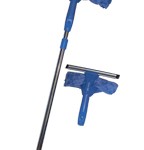

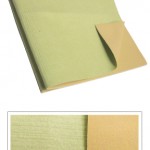
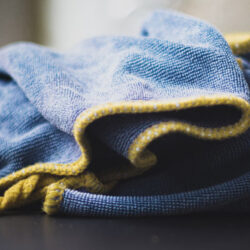
 Ordering Info
Ordering Info Customer Service
Customer Service Follow Us
Follow Us Search For Stuff
Search For Stuff Find Us
Find Us Call Us
Call Us Pay Us
Pay Us

0 Comments so far.
Use the form below to add your own thoughts or questions. Scroll down to read what other people had to say.